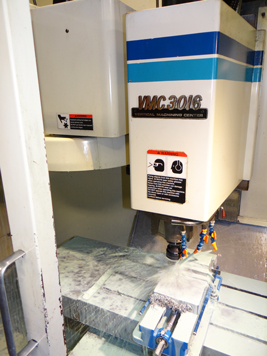Appleseed wrote:
NOHOME wrote:
Duke MegaDork:
223 lb= 101kg
556 kg = 1225 lb.
Which one is it? Or am I missing a joke here?

Public Safety Announcement: All AR shooters please note; the 5.56 and the .223 are NOT, in fact, identical. The 5.56 has a slightly longer neck, thicker case walls near the head, and creates notably higher chamber pressures for the same weight of charge. DO NOT FIRE 5.56 ammo in a .223 chamber. You may, however safely fire .223 in a 5.56 chamber, just with a slight loss of precision and wider velocity spread, since the .223 case will fire-form to the 5.56 chamber. That is all.

ncjay
Dork
2/6/16 8:03 a.m.
 It's someone's job to keep that clean and shiny. Good thing it's not me.
It's someone's job to keep that clean and shiny. Good thing it's not me.

NGTD
UltraDork
2/6/16 8:14 a.m.
This is what happens when the rules say you can only have 4 cylinders and you really, really want 8!
914Driver wrote:

NGTD wrote:
This is what happens when the rules say you can only have 4 cylinders and you really, really want 8!
914Driver wrote:

Honda NR engine set up

Honda can do cool stuff when they aren't admiring Toyota's beige.
WildScotsRacing wrote:
Appleseed wrote:
NOHOME wrote:
Duke MegaDork:
223 lb= 101kg
556 kg = 1225 lb.
Which one is it? Or am I missing a joke here?

Public Safety Announcement: All AR shooters please note; the 5.56 and the .223 are NOT, in fact, identical. The 5.56 has a slightly longer neck, thicker case walls near the head, and creates notably higher chamber pressures for the same weight of charge. DO NOT FIRE 5.56 ammo in a .223 chamber. You may, however safely fire .223 in a 5.56 chamber, just with a slight loss of precision and wider velocity spread, since the .223 case will fire-form to the 5.56 chamber. That is all.
So what you are saying is for a apocalypse weapon the 5.56 is a better choice of chamber because it gives you the choice of two different ammos instead of one....kind of like the .308 vs the 7.62

914Driver wrote:

I still want to know how they bored the cylinders.
Or calculated the piston skirts' geometry.
Or machined/sized the rings. And are the gaps at the end or in the straight span? How do they maintain seal when they expand from heat?
I note with interest, on that last item, that the oil control rings are missing from that display.
Knurled wrote:
914Driver wrote:

I still want to know how they bored the cylinders.
Or calculated the piston skirts' geometry.
Or machined/sized the rings. And are the gaps at the end or in the straight span? How do they maintain seal when they expand from heat?
I note with interest, on that last item, that the oil control rings are missing from that display.
The bore and hone isn't an issue with a CNC. But they also started building this in 1979.
The Oval Piston Engine.

914Driver wrote:

Pardon me,
Do you have any Grey Poupon?

ncjay
Dork
2/6/16 4:22 p.m.
 Part of my brain really wants to hate this, but shorten the stacks (or delete altogether), lower it a few, and it would make a great race car hauler.
Part of my brain really wants to hate this, but shorten the stacks (or delete altogether), lower it a few, and it would make a great race car hauler.
Knurled wrote:
914Driver wrote:

I still want to know how they bored the cylinders.
Or calculated the piston skirts' geometry.
Or machined/sized the rings. And are the gaps at the end or in the straight span? How do they maintain seal when they expand from heat?
I note with interest, on that last item, that the oil control rings are missing from that display.
All very good questions, and also questions that Honda never really found the correct answers to. Also, why we don't see any oval piston race engines anymore.

Probably a repost but worth a repeat.










 It's someone's job to keep that clean and shiny. Good thing it's not me.
It's someone's job to keep that clean and shiny. Good thing it's not me.

















































